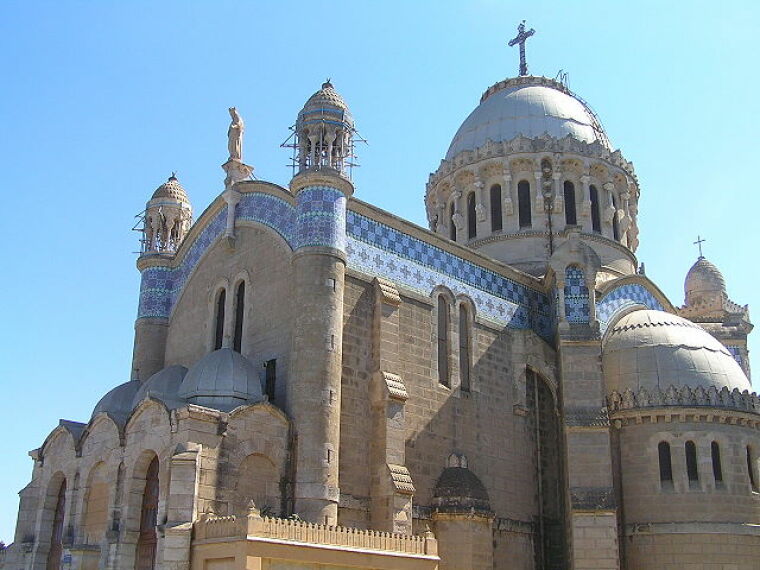Algerian government denies discriminating against Christians amid crackdown on churches

The Algerian government has denied that it was discriminating against Christians when it closed several churches in recent months and insisted that the establishments were shut down because they "did not meet the standards required of a place of worship."
According to World Watch Monitor, Algerian authorities have closed down two churches in the north-western city of Oran last week, and two other churches had received a notification to close in the eastern city of Tizi Ouzou the previous week. In November, a church in Ain Turk, 15 kilometers from Oran, was reportedly shut down.
Religious Affairs Minister Mohamed Aissa contended that the churches were shut down because "they were built without complying with the regulations of the Republic," adding that if buildings do not have emergency exits, it must be shut down "even if it is a mosque."
"When a place of worship is built without any notice showing it's a place of worship, which may enable the state to protect it, this place must be closed," he went on to say.
The Protestant Church of Algeria (known as EPA, its French acronym), which is the country's main Protestant church body, has contended that the "government is simply implementing the 2006 law of regulating non-Muslim worship."
"This law is a Sword of Damocles suspended above the churches. It is the legal instrument that the government uses to silence the Church. The purpose of this law is precisely to curb the activities of churches and to control them," an EPA spokesperson said.
"The content of this law focuses on the coercive side, conviction and sanction. This 2006 law was not aimed at helping Christian communities to comply with standards or to regularise themselves," the spokesperson, who wished to remain anonymous, added.
Since December, 25 out of 45 churches affiliated with the EPA have been visited by a committee of officials from the Ministry of Religious Affairs, national gendarmerie, intelligence department and fire brigade as part of an effort to check their compliance with safety regulations.
The officials had given the churches three months' notice and advised them to seek permission from the Ministry of Religious Affairs.
The EPA complained that the church closures were "unjustifiable," given that all the churches had been registered with the Protestant organization, which has been officially recognized by the government since 1974.
Under the 2006 law, a permit must be obtained before a building can be used for non-Muslim worship, and such activity could only be conducted in buildings which have been specifically designated for that purpose.
After the implementation of the law, 26 churches were shut down in 2008 after they received an official written order or verbal warning from authorities.
Christians were not the only ones targeted by the government's crackdown. In August last year, members of the Ahmadi sect, which has been accused of heresy by Islamic extremists, have complained that they have been forced to go underground to worship.
Since June 2016, the government has arrested 286 Ahmadis, with most of them being handed jail terms ranging from a three-month suspended sentence to four years.
In July 2017, Aissa had claimed that the Ahmadis were involved in a plot by Israel to destabilize the country.
 Christians don't have to affirm transgenderism, but they can’t express that view at work: tribunal
Christians don't have to affirm transgenderism, but they can’t express that view at work: tribunal Archaeology discovery: Medieval Christian prayer beads found on Holy Island
Archaeology discovery: Medieval Christian prayer beads found on Holy Island Presbyterian Church in America votes to leave National Association of Evangelicals
Presbyterian Church in America votes to leave National Association of Evangelicals Over 50 killed in 'vile and satanic' attack at Nigerian church on Pentecost Sunday
Over 50 killed in 'vile and satanic' attack at Nigerian church on Pentecost Sunday Ukrainian Orthodox Church severs ties with Moscow over Patriarch Kirill's support for Putin's war
Ukrainian Orthodox Church severs ties with Moscow over Patriarch Kirill's support for Putin's war Islamic State kills 20 Nigerian Christians as revenge for US airstrike
Islamic State kills 20 Nigerian Christians as revenge for US airstrike Man who served 33 years in prison for murder leads inmates to Christ
Man who served 33 years in prison for murder leads inmates to Christ


 Nigerian student beaten to death, body burned over ‘blasphemous’ WhatsApp message
Nigerian student beaten to death, body burned over ‘blasphemous’ WhatsApp message 'A new low': World reacts after Hong Kong arrests 90-year-old Cardinal Joseph Zen
'A new low': World reacts after Hong Kong arrests 90-year-old Cardinal Joseph Zen Iran sentences Christian man to 10 years in prison for hosting house church worship gathering
Iran sentences Christian man to 10 years in prison for hosting house church worship gathering French Guyana: Pastor shot dead, church set on fire after meeting delegation of Evangelicals
French Guyana: Pastor shot dead, church set on fire after meeting delegation of Evangelicals ‘Talking Jesus’ report finds only 6% of UK adults identify as practicing Christians
‘Talking Jesus’ report finds only 6% of UK adults identify as practicing Christians Mission Eurasia ministry center blown up in Ukraine, hundreds of Bibles destroyed: 'God will provide'
Mission Eurasia ministry center blown up in Ukraine, hundreds of Bibles destroyed: 'God will provide' Church holds service for first time after ISIS desecrated it 8 years ago
Church holds service for first time after ISIS desecrated it 8 years ago Burger King apologizes for 'offensive campaign' using Jesus' words at the Last Supper
Burger King apologizes for 'offensive campaign' using Jesus' words at the Last Supper Uganda: Muslims abduct teacher, burn him inside mosque for praying in Christ’s name
Uganda: Muslims abduct teacher, burn him inside mosque for praying in Christ’s name